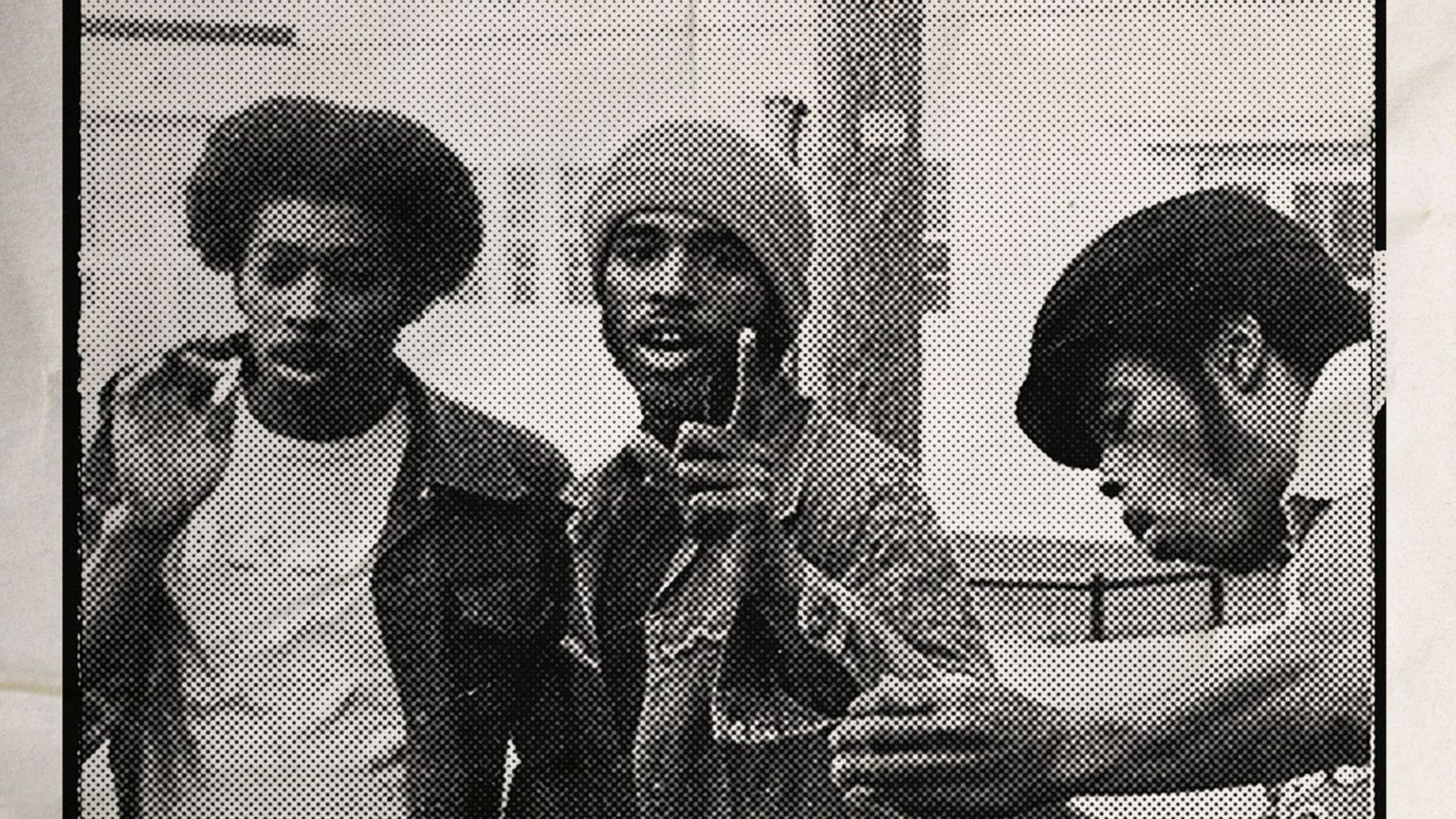By Don Stradley
If there is more fertile ground for documentaries than the slush pile of forgotten rock bands, I’ve yet to see it.
Mark Christopher Covino and Jeff Howlett’s A Band Called Death is a worthy addition to the rock doc canon. It’s about the Hackneys, a trio of African-American brothers from Detroit. They were living in one of the world’s music capitals, but they weren’t interested in the sweet soul sounds coming from Motown. Instead, they preferred The Beatles, The Who, and Alice Cooper. When their mother received a financial settlement after a car accident, she gave the boys some money to spend on whatever they wanted. Wanting to imitate the bombastic rock sounds they loved, the brothers bought guitars and drums and set up a makeshift rehearsal space in their bedroom. They proceeded to slash and burn, playing amplified “white boy” music and driving their neighbors crazy.
The Hackneys (Dannis on drums, Bobby on bass, David on guitar) were known as Death. Their sound has been described as “protopunk,” or “pre-punk,” and they were indeed a year or so ahead of The Ramones, the band to which they bear the closest sonic resemblance. But the Hackneys never call their sound “punk,” they call it rock & roll. There is punk energy in their music, and Bobby’s throaty vocals also sound a bit like The New York Dolls’ David Johansen, but there were also distinctly non-punk guitar solos from David (he wanted to be a cross between Pete Townsend and Jimi Hendrix), and some echo effects on the vocals that gave the band an eerie, 1950s sci-fi sound. There’s also a staccato rhythm that erupts in certain songs, sounding like the California punk that wouldn’t surface for several years. Somehow, the Hackney brothers noodled around in their bedroom and came up with riffs that still sound fresh 40 years later. But aside from a few self-produced singles, they recorded little. The name of the band, you see, was a sticking point. Record labels wouldn’t touch it.
David, the band’s guiding light and chief songwriter, chose the name after attending the funeral of the Hackney boys’ father. David was the sort of character that exists primarily in rock music annals, the gifted but misunderstood firebrand who can play like hell but can’t look after himself. He was a cloud gazer who saw Death as a spiritual band. Beneath the power cords, he declared, was a message for humanity. David was also as stubborn as a bloodstain. When Clive Davis of Arista Records offered to sign the group if they’d change their name, David refused. Death was his concept. The name had to stick.
Eventually, David’s refusal to change the band’s name caused the brothers to split up. Dannis and Bobby went on their own and started a reggae band, adapting fake Jamaican accents just as easily as they’d mastered the sounds of Brit rockers. David married, but remained a lost soul. He drank himself into oblivion until he died of cancer at age 49. Before he died, though, he gave the original Death tapes to his brother. “Keep these,” he said. ”The world will want to hear this music after I’m gone.” It was the sort of spooky thing David was always saying, but he turned out to be right.
The documentary traces the fluke “discovery” of the tapes in the late 2000s, chronicling how Dannis and Bobby’s sons created a Death tribute band called Rough Francis. There’s an incredibly touching scene where Bobby watches Rough Francis play Death’s old tunes at a club. Ultimately, this is a family tale. The Hackneys are warm people. When Bobby and Dannis take their first tentative steps to reform Death after more than 30 years, you can’t help but root for them.
Much will be written about Death’s place in rock history, and a few of the talking heads in the film try to give Death belated credit for being the first punk rock band. This is a stretch, as is the notion that David was some kind of genius. Granted, they were a talented, unique band, and their circumstances were fascinating. But overrating them distracts from the story being told here. Death might’ve been great if a record label had taken time to develop them over a few albums, but this never happened. It’s hard to say what Death could’ve accomplished. Chances are David’s oddball nature would cause them to self-destruct. It’s scary to imagine David with rock star money.
More questions should have been asked of the two remaining Hackney brothers. Did they ever get heat from other African American musicians for playing what was basically a white sound? And did they know that a metal band called Death was signed in the mid 1980s and sold over 2-million records worldwide? By some strange coincidence, the founder of that band also died young after a cancer battle. What, exactly, is in a name?
##
Stream A Band Called Death, South by Southwest 2013 Audience Award winner, now on Fandor.




